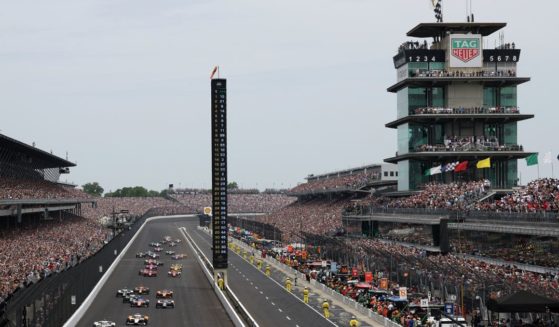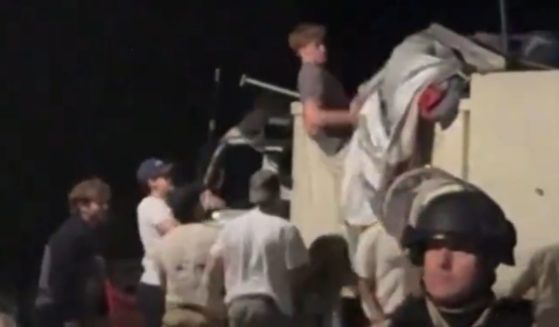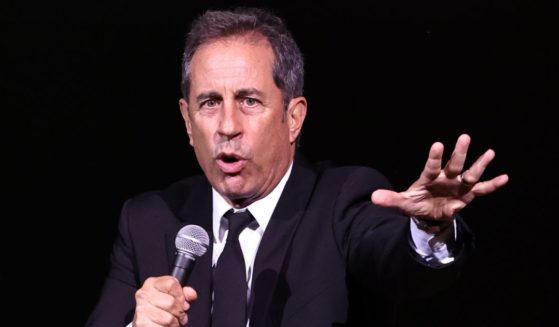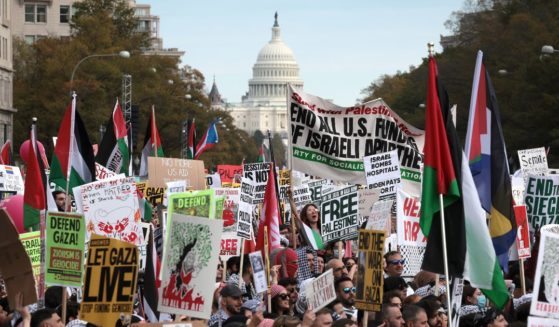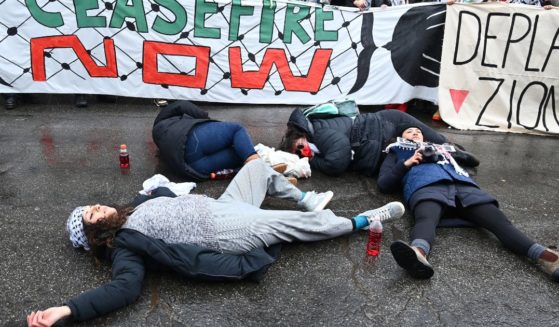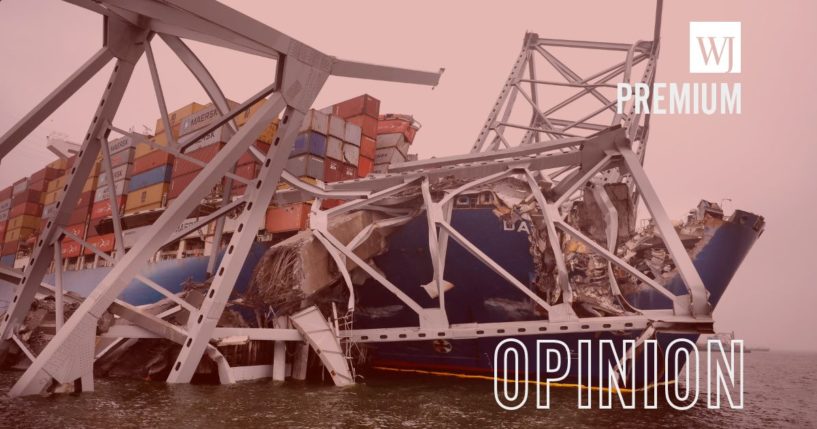
Pattern? When US Turns on Israel, Disaster Strikes America's Shores
The collapse of the Francis Scott Key Bridge in Baltimore last week appears to fit a pattern of catastrophes happening in the U.S. very shortly after the nation takes an adverse action toward Israel.
On March 25, the United Nations Security Council passed a resolution calling for an immediate cease-fire in Israel’s war with Hamas.
Rather than exercise its veto power, as the U.S. has done consistently in the past to protect the Jewish state from the UN’s pronounced, longstanding anti-Israel bias, the Biden administration abstained from voting.
“The U.S. declining to protect Israel from a resolution it passionately objects to by not providing a veto is an extraordinary thing,” Hussein Ibish, a senior resident scholar at the Arab Gulf States Institute in Washington, told CNBC.
The following morning at 1:30 a.m., a cargo ship ran into the Francis Scott Key Bridge, causing it to collapse and killing six workers, as well as shutting down the Port of Baltimore, one of the busiest in the country, for the foreseeable future.
The bridge is named after the writer of “The Star-Spangled Banner,” so it has very symbolic significance for the nation.
Here’s video of the collapse of the Francis Key Scott Bridge from this morning. The bridge was struck by a cargo ship just before 1:30 a.m. A search is underway for at least seven people. pic.twitter.com/FRGHeJ1gIe
— The Baltimore Banner (@BaltimoreBanner) March 26, 2024
“Marking the End Times” host Mark Hitchcock could not help noting the timing of the disaster on his Thursday podcast titled, “The Widening US-Israel Rift: Prophetic Significance?”
“One of the key factors of God’s blessing … on our country is our support for Israel. And as that support begins to quickly deteriorate, this could be another contributing factor to America’s demise,” he asserted.
The Dallas Theological Seminary professor and pastor of Faith Bible Church in Edmond, Oklahoma, cited the passage in Genesis 12 where God tells Abraham to go to the land of Israel.
“I will make of you a great nation, and I will bless you and make your name great, so that you will be a blessing. I will bless those who bless you, and him who dishonors you I will curse, and in you all the families of the earth shall be blessed,” God said.
Hitchcock — author of many books about biblical prophecy, including most recently “What’s Next? Israel-Gaza War,” which he co-authored with Jimmy Evans — argued that the U.S. has not been blessing Israel of late.
“There’s a very open, very public breach right now between the United States and Israel,” Hitchcock said.
He pointed not only to America’s recent abstention at the UN, but also Senate Majority Leader Chuck Schumer’s March 14 speech calling for Prime Minister Benjamin Netanyahu to be replaced with someone who supports a “two-state solution” to the Palestinian issue.
President Joe Biden called it a “good speech.”
However, most Israelis oppose a two-state solution, especially after the Oct. 7 attacks launched from the Gaza Strip in which Hamas killed at least 1,200 people and took over 240 captives.
A Gallup poll published in December showed 65 percent of Israelis opposed the two-state plan, while 25 percent supported it. In January, Politico reported, “The two-state solution is dead,” citing that polling.
Since Israel pulled out of the Gaza Strip in 2005 and the Palestinian residents elected Hamas members to lead their government, the terrorist group has consistently used Gaza as a base of operations to attack Israel.
The clear concern is that if more territory is ceded to the Palestinians, the same would be true.
Hitchcock also referenced comments from Vice President Kamala Harris in which she said the U.S. has not ruled out “consequences” if Israel launches an offensive against Rafah, Hamas’ last stronghold in southern Gaza.
“To me this is startling because Israel right now is at the threshold of victory over Hamas. They have Hamas finally cornered down in a small area of the Gaza Strip,” he said. “Many in the U.S. want Israel to stop just when they finally have victory in their grasp.”
Hitchcock contended that it’s difficult not to see the connection between the collapse of the Francis Scott Key Bridge and America’s increasingly hostile stance toward Israel.
He cited William Koenig’s book “Eye to Eye: Facing the Consequences of Dividing Israel,” in which the author chronicles the catastrophic events that have happened each time the U.S. has tried to push Israel toward a two-state solution.
In an online newsletter, Koenig also made the connection between the Key Bridge collapse and America’s recent actions toward Israel.
He pointed out, “On Friday, March 22, U.S. Secretary of State [Antony] Blinken warned that a major Rafah operation could result in global isolation and long-term security harm for Israel.”
On Sunday, March 24, Harris made her comment about potential “consequences for Israel if it goes ahead with the Rafah operation,” Koenig continued. The UN cease-fire abstention came on Monday, March 25, followed by the Key Bridge collapse early the next morning.
In a recent video posted on YouTube, Koenig laid out the premise of “Eye to Eye” (originally published in 2007 and updated in 2017).
“The Lord showed me as I observed news that when we applied pressure on Israel to divide their covenant land, given by God to Abraham, Isaac and Jacob in Genesis 15:18, we’d have enormous, record-setting catastrophes that happened the same day or within 24 hours,” he said.
“I noticed the greater the pressure on Israel to divide their land — or in other words to create an Arab state in the biblical heartland of Israel, Judea and Samaria — the greater the corresponding catastrophes,” Koenig said, listing the Perfect Storm (1991); Sept. 11, 2001; Hurricane Katrina (2005) and Hurricane Ian (2022) as examples, as well as a large tornado outbreak.
The Perfect Storm lashed the northeast coast of the U.S. with fierce winds and record-setting waves, causing over $200 million in destruction (over $450 million in today’s dollars).
The New York Times reported on Nov. 1, 1991, that three-story waves filled then-President George H.W. Bush’s Maine vacation home with seawater, causing extensive damage.
Bush was attending the Madrid Peace Conference at the time, which included talks focused on Israel giving up land in exchange for a promised peace.
Similarly, in 2001, Koenig recounted that the George W. Bush administration was working on a comprehensive peace plan with then-Saudi Crown Prince Abdullah ibn Abdulaziz in the days before the Sept. 11 attacks, as reported by The Washington Post.
“The God of Israel did not produce the evil of 9/11, but he did not restrain it,” Koenig said.
The attacks brought the violence Israel had been experiencing from its Arab neighbors right to America’s shores.
In 2002, the Bush administration joined Russia, the European Union and the UN in the so-called Quartet to facilitate Middle East peace negotiations, Koenig noted in a presentation about his book in 2007.
The Quartet’s plan for Israel, officially released on April 30, 2003, called for a two-state solution.
“The day after the Quartet roadmap was delivered was the beginning of the biggest tornado outbreak in U.S. history,” Koenig said. There were 434 tornadoes sighted in the Midwestern states in the first 10 days of May 2003, he said.
WISH-TV reported that six of the tornadoes reached F4 strength, meaning winds of 207 mph and stronger. The storms killed 42 people and injured over 600 more.
“This was in the heartland of America, the Midwest, as the heartland of Israel was being negotiated,” Koenig highlighted, referring to the West Bank, also known as Judea and Samaria, which Israel captured from Jordan during the Six-Day War in 1967.
55 years ago this week, a war began between an outnumbered Israel and three neighboring countries, Egypt, Jordan & Syria.
Israel’s victory in the Six Day War became a defining moment for the young country and significantly altered the map of the Middle East. pic.twitter.com/s8WOq3GQEh
— Xavi Ruiz (@xruiztru) June 7, 2022
Koenig further noted that in the summer of 2003, Europe experienced its hottest temperatures going back to 1540, resulting in at least 30,000 deaths, according to the UN.
Another catastrophic incident happened in August 2005.
Under pressure from the U.S., Israeli Prime Minister Ariel Sharon agreed to hand the Gaza Strip over to the Palestinians. As part of the plan, thousands of Israeli citizens living in Gaza and parts of the West Bank were forced to leave their homes.
The evacuations were completed on Aug. 23, 2005.
“I want to congratulate Prime Minister Sharon for having made a very tough decision,” Bush said that day, adding, “The prime minister made a courageous decision to withdraw from Gaza.”
“This is a very hopeful period,” he also stated. “My vision, my hope is that one day we’ll see two states — two democratic states living side by side in peace.”
The same day, what would become Hurricane Katrina formed over the Bahamas.
The Category 4 storm, with winds as high as 140 mph, was the costliest hurricane to ever hit the U.S., causing $196.3 billion in damage and killing over 1,800 people.
Koenig pointed out, “It came right on the heels of the final Jews being forced from their home. The parallels in Israel, the parallels with what was happening in New Orleans and throughout the Gulf Coast, was amazing. Evacuees and refugees being forced from their home in Gaza. Evacuees and refugees being forced from their home in New Orleans.”
Koenig said there were 2,700 Israeli homes and businesses destroyed in Gaza and 225,000 homes and businesses destroyed in Louisiana, Mississippi and Alabama.
More recently, Biden, while speaking at the UN on Sept. 21, 2022, reaffirmed his administration’s commitment to the two-state plan.
“A negotiated two-state solution remains, in our view, the best way to ensure Israel’s security and prosperity for the future and give the Palestinians the state … to which they are entitled,” he said.
The Biden administration had been pushing Israel to agree to a two-state solution leading up to the UN meeting, Koenig told “Tipping Point” podcast host Jimmy Evans last year.
On Sept. 22, then-Israeli Prime Minister Yair Lapid announced his full support for the plan, and Biden congratulated him in a tweet after the speech, writing, “I could not agree more.”
I welcome @IsraeliPM Lapid’s courageous statement at the UN General Assembly: “An agreement with the Palestinians, based on two states for two peoples, is the right thing for Israel’s security, for Israel’s economy, and for the future of our children.”
I could not agree more.
— President Biden (@POTUS) September 22, 2022
The following day, Hurricane Ian began to form. It would cause $116.3 billion in damages, the third most in U.S. history.
The pattern of the U.S. suffering severe consequences after pushing the Israelis to give up the land that God gave them is uncanny. The collapse of the Francis Scott Key Bridge appears to be just the latest iteration of it.
The Biden administration would do well to keep this in mind and end the policy of “land for peace.”
Truth and Accuracy
We are committed to truth and accuracy in all of our journalism. Read our editorial standards.

